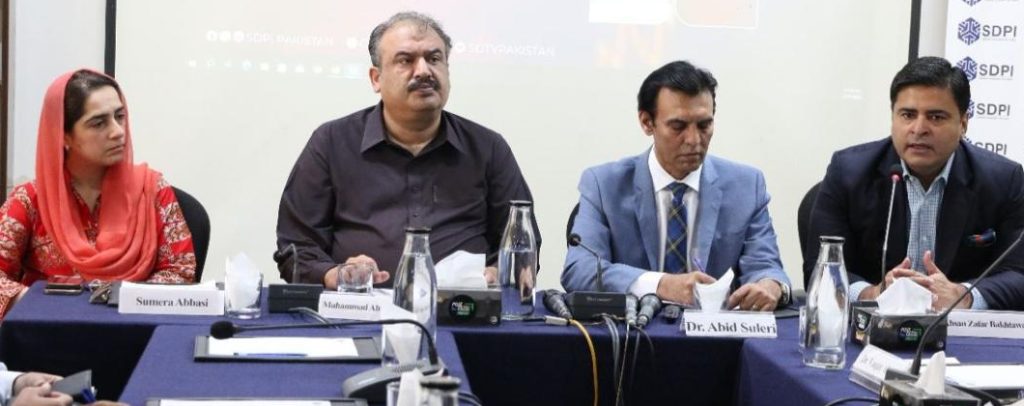Proper track and trace system needed to achieve taxation targets: Ahsan Zafar Bakhtawari
ISLAMABAD ( Web News )
The Speakers at a pre-budget consultative session on Monday demanded the government to ensure a dedicated track and trace system to bring the retailers, and businesses from the informal sectors into the tax net to generate revenue from untaxed sectors.
The Sustainable Development Policy Institute (SDPI) organized the consultative discussion titled “Pre-Budget Seminar: Tax Reforms in Agriculture, Retail and Real Estate Sectors”.
Dr. Abid Qaiyum Suleri, Executive Director, SDPI underlined that it was imperative to unearth the bottlenecks in paying taxes. He added that these sectors were willing to pay taxes and it was necessary to consider their suggestions in the policy-making processes.
Ahsan Zafar Bakhtawri, President, Islamabad Chamber of Commerce, and Industry (ICCI) said the retail sector was paying taxes in the country, but it was crucial to integrate the retailers who were not part of the system.
He demanded the government to develop a proper track and trace system that could identify the non-tax paying retailers who were doing billions of rupees annual business but did not pay taxes. He said that products should not supplied to retailers who lack NTN or national tax numbers. The POS integration system needs to integrate all retailers otherwise it would lead to massive erosion in the market balance among competitors, he added.
Afaq Tiwana, CEO Farmers Association of Pakistan said the under discussion three sectors shared a common challenge of bringing the informal sector into the tax regime. He mentioned that the agriculture sector was paying taxes in three tiers that also included a tax return issued from the patwari that levies a cumulative 15% tax. He added that although it was an informal sector, its land records were digitized and was digitally documented economy. “The taxation should be made fair along with deregulation of the agriculture sector which is important as the government should reduce its involvement in our regime and bring us into tax net which should be a voluntary fixed tax regime,” he said.
Ahsan Malik, Senior Real Estate Analyst said there was a trust deficit between the regulators and the sectors not paying taxes which needed to be bridged through a fair and progressive tax regime. He added that the FBR regulatory and enforcement measures were further depleting the trust of the masses as the tax-paying entities and non-taxpayers should be treated separately.
Sumera Abbasi, Executive Director TiE said there was a need to bring clarity among the startups and small businesses with proper categories of retailers to ensure an inclusive tax regime. She said many retailers particularly poor women avoid paying taxes due to laborious paperwork that makes women entrepreneurs not interested in taxation. She added that stringent tax regulatory regimes have failed to provide a conducive environment for startup growth.
“Compliance cost needs to be reduced and made fair for local masses, whereas women in startups are not discussed during the budget which should discussed more clearly,” Sumera Abbasi noted.
Dr Vaqar Ahmed, Joint Executive Director, SDPI mentioned that due to the informal nature of the agriculture sector, calculating and collecting the actual tax liability in the sector has proven challenging. He added that tech-based solutions were offering promising solutions for improved accuracy.

